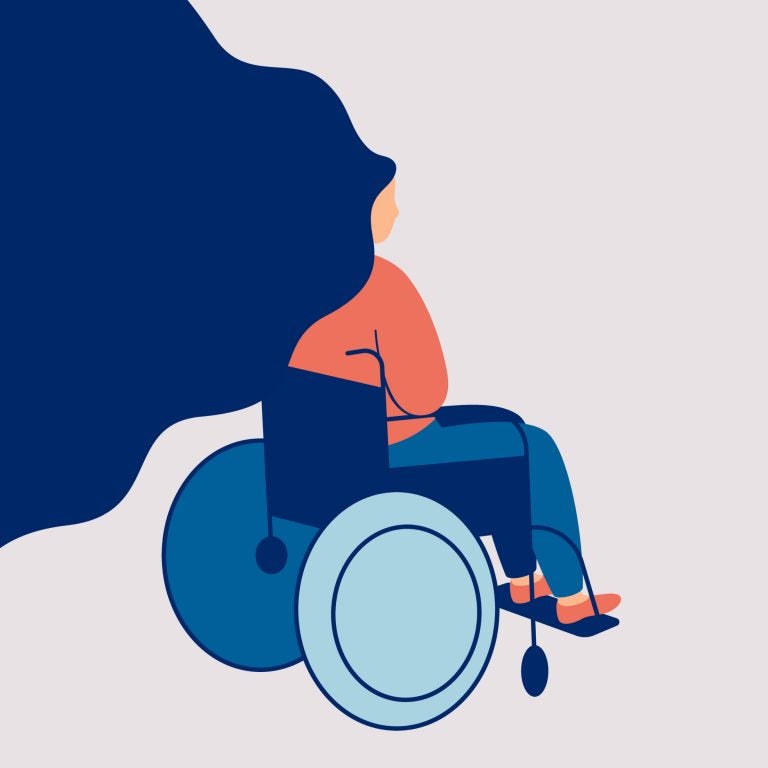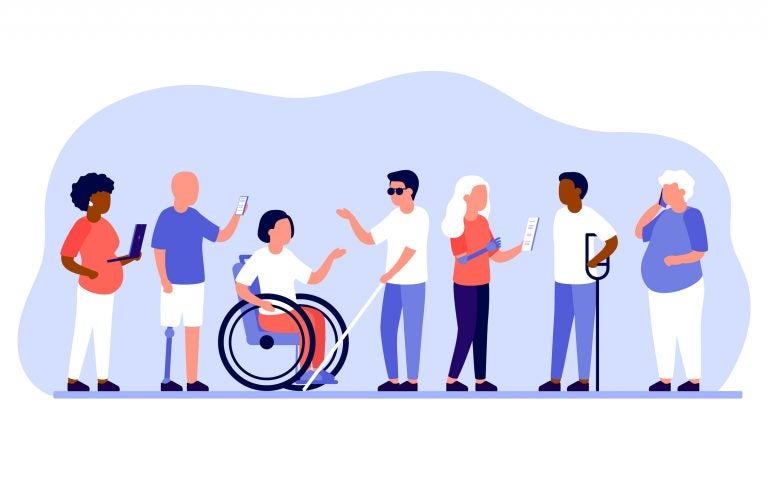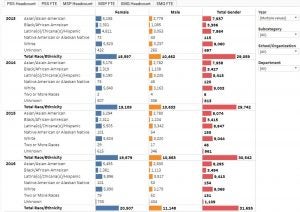ADA/504 Compliance Office
The UCLA ADA/504 Compliance Office leads and administers all aspects of compliance throughout the UCLA and UCLA Health community with federal and state disability laws, as well as University policies and procedures pertaining to protections for students and employees with disabilities.
Mission
The UCLA ADA/504 Compliance Office’s continuing mission is to (1) coordinate and monitor UCLA compliance with requirements of Section 504 of the Rehabilitation Act of 1973 as amended, the provisions of the Americans with Disabilities Act of 1990; (2) provide guidance and evaluate efforts to improve access to UCLA facilities and programs; (3) develop procedures to identify and correct access deficiencies; (4) advise the UCLA community regarding compliance related issues and recommend appropriate remedial actions; (5) coordinate the implementation of the ADA transition plan; and (6) field complaints alleging UCLA noncompliance with ADA & Section 504.
The UCLA ADA/504 Compliance Office monitors compliance with the Americans with Disabilities Act and Section 504 of the Rehabilitation Act of 1973:
- Addresses physical accessibility issues and coordinates implementation of the Transition Plan; and
- Advises the UCLA community regarding making services, programs, and activities accessible; and
- Investigates ADA/504 related issues and reports of disability-based discrimination; and
- Provides ADA/504 related trainings.
➡ UCLA Notice of Non-Discrimination on the Basis of Disability
Other Resources That Can Provide Assistance
The UCLA ADA/504 Compliance Office strictly covers issues related to disability compliance.
- If you are seeking an accommodation and/or support related to a disability, please reach out to one of the following entities
- For students, please contact contact the Center for Accessible Education (“CAE”) at (310) 825-1501.
- For university staff, please contact Disability Management.
- For UCLA Health staff, please contact UCLA Health Disability Management.
- If you need assistance with an accessibility-related repair, please contact Facilities Management at (310) 825-9236.
- If you are seeking additional information on resources for individuals with disabilities or how to meet the needs of individuals with disabilities, please consider reviewing the EDI Toolkit: Supporting Our Disability Community or visiting the UCLA Library for additional assistance.
Definitions
Disability-Based Discrimination means the exclusion of a qualified Student or Employee, on the basis of disability, from participation in any academic, research, or other University service, program, or activity; or the denial of a qualified Student or Employee, on the basis of disability, of the benefits of any academic, research, or other University service, program, or activity; or otherwise subjecting a qualified Student or Employee, on the basis of disability, to discrimination in any academic, research, or other University service, program, or activity. The University has a responsibility to respond promptly and equitably to Disability-Based Discrimination of which it knew or should have known.
Disability-Based Harassment means conduct that is sufficiently severe, pervasive, or persistent so as to interfere with or limit a Student or Employee’s ability to participate in or benefit from the services, activities, or opportunities offered by the University. Harassing conduct may take many forms, including: verbal acts and name-calling; graphic and written statements which may include use of cell phones or the Internet; or other conduct that may be physically threatening, harmful, or humiliating. The University has a responsibility to respond promptly and equitably to Disability-Based Harassment of which it knew or should have known.
Failure to Accommodate means failure by the University to make reasonable modifications to its practices, policies, and procedures, and to provide auxiliary aids and services to a Student or Employee with a Disability, unless to do so would fundamentally alter the nature of the program or would result in an undue financial or administrative burden. A Student or Employee is required to follow University procedures, see below, to request accommodations and must establish that they have done so prior to filing a grievance.
Where to Report?
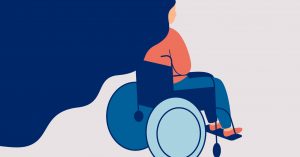
Reporting Incidents of Disability Discrimination and Harassment
Incidents of possible discrimination and harassment on the basis of any protected class identity, including disability, should be reported to the UCLA Office of Equity, Diversity and Inclusion’s Civil Rights Office’s “Report an Incident” feature. Following receipt of a report, a staff member from the Civil Rights Office will engage in outreach to assess and investigate the incident.
Student Concerns Regarding Disability Discrimination, Disability Harassment and Denial of Accommodations on the Basis of Disability
In addition to reporting incidents of possible discrimination and harassment as described above, UCLA students may also file grievances with the ADA/Section 504 Compliance Office. Per University Procedure 230.2, students have the right to file grievances if they believe they have been the subject of disability-based discrimination, disability-based harassment, and/or have been denied an accommodation on the basis of disability.
Should a student wish to file a grievance alleging any of the above has occurred, an e-mail requesting to open a grievance should be sent to grievance@saonet.ucla.edu for review. The e-mail should include the facts that provide the basis for the grievance. To the extent known, the e-mail should also include the specific policy and/or law alleged to be violated and the preferred remedy. Please note that all grievances must be filed within 180 days of the time at which the student could have been reasonably expected to have knowledge of the alleged violation.
Disability Discrimination and the Duty to Accommodate

The law and University policy prohibit discrimination based on physical or mental disability. Disability discrimination occurs when an employer treats a qualified employee or job applicant unfavorably because the person has a disability, has a history of a disability, or is perceived to have a disability.
Reasonable accommodation: The law requires an employer to provide reasonable accommodation to a qualified employee or applicant with a disability, unless doing so would cause undue hardship – that is, significant difficulty or expense – for the employer.
A reasonable accommodation is any change to the job or work environment that helps a person with a disability to apply for a job, perform their essential job duties, or enjoy the benefits of employment.
Reasonable accommodations can include, for example:
- Acquiring or modifying equipment or devices
- Job restructuring
- Part-time or modified work schedules
- Reassignment to a vacant position
- Adjusting or modifying examinations, training materials or policies
- Providing readers and interpreters
- Making the workplace readily accessible to and usable by people with disabilities
Disability Accommodations
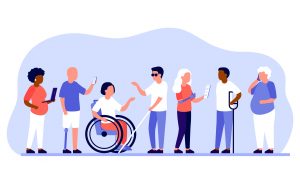
For Employees
If you have a disability and need an accommodation, you can contact your UCLA Disability Management Office for help in arranging an accommodation.
If you are a supervisor or manager, you have certain responsibilities if you learn that an employee may need an accommodation for a disability.
- If an employee shares with you that they have a disability and need an accommodation:
- Contact the appropriate UCLA disability management office for assistance in facilitating an interactive process to determine whether a reasonable accommodation may be provided.
- A request for accommodation does not have to be in writing.
- The words “reasonable accommodation” do not have to be used.
- If an employee shares with you that they have a disability or medical condition, but does not request an accommodation, the best practice is to ask:
- “How can I help?” Or
- “What can we do to support you?”
- Do not ask for details about an employee’s disability or medical condition. (If needed, the disability management office can request the appropriate medical documentation.)
Disability Management Offices
- Disability Management, UCLA Campus
- Disability Management, UCLA Health
- You can also contact the UCLA EDI Civil Rights Office for help connecting with the appropriate office.
For Students
In addition to workplace accommodations for employees, the law and University policy require UCLA to provide reasonable accommodations for students with disabilities.
If a student requests an accommodation for a disability, refer the student to the Center for Accessible Education (CAE). CAE will facilitate the accommodations process and determine whether an reasonable accommodation may be provided.
Additional Resources

Campus Construction Update
UCLA is committed to maintaining a campus that is open and accessible to people with disabilities. Campus construction sometimes requires that alternate routes of travel be established to ensure accessibility. To learn more about specific construction projects please visit the UCLA Capital Programs web site detailing construction projects.
